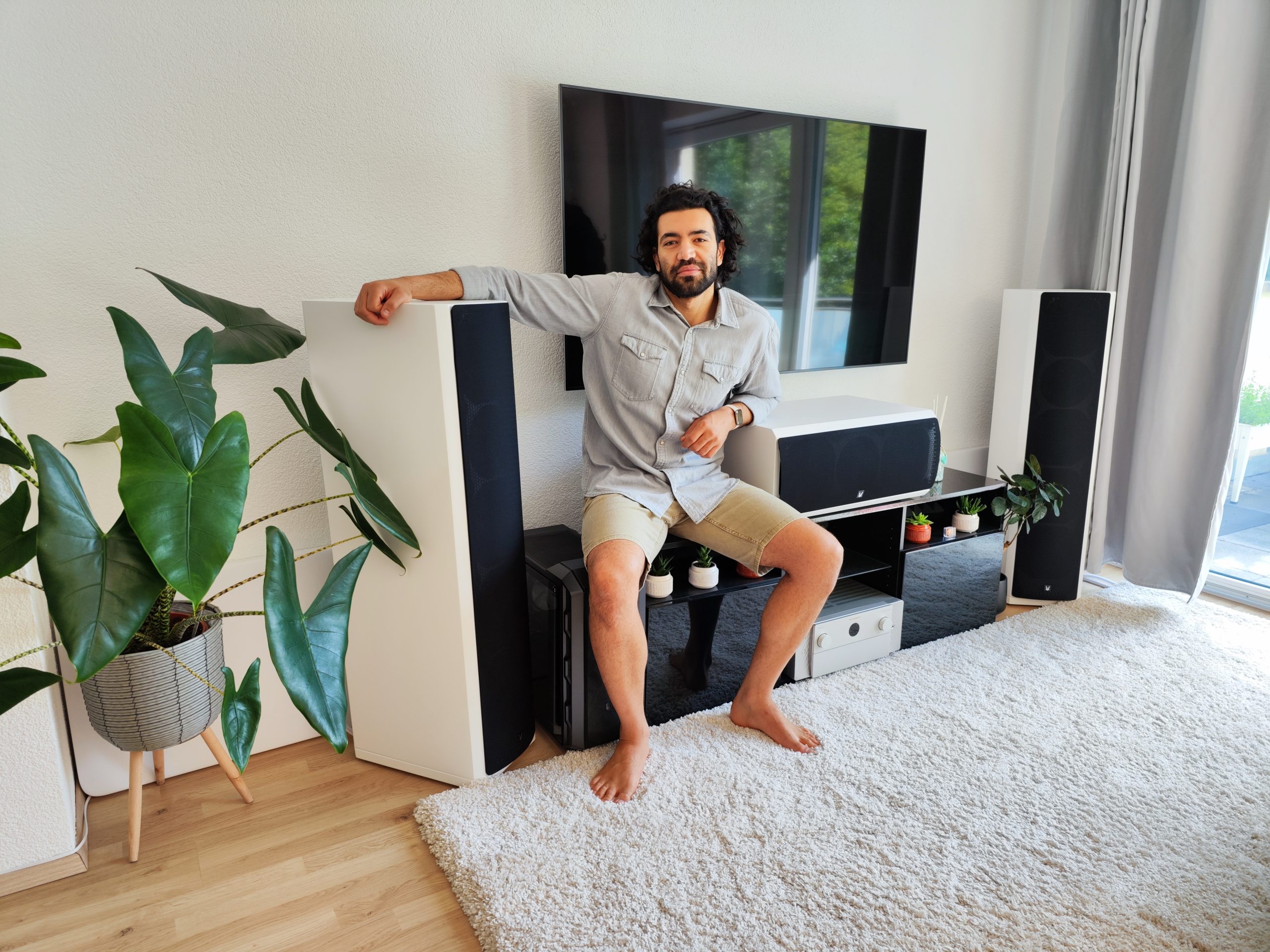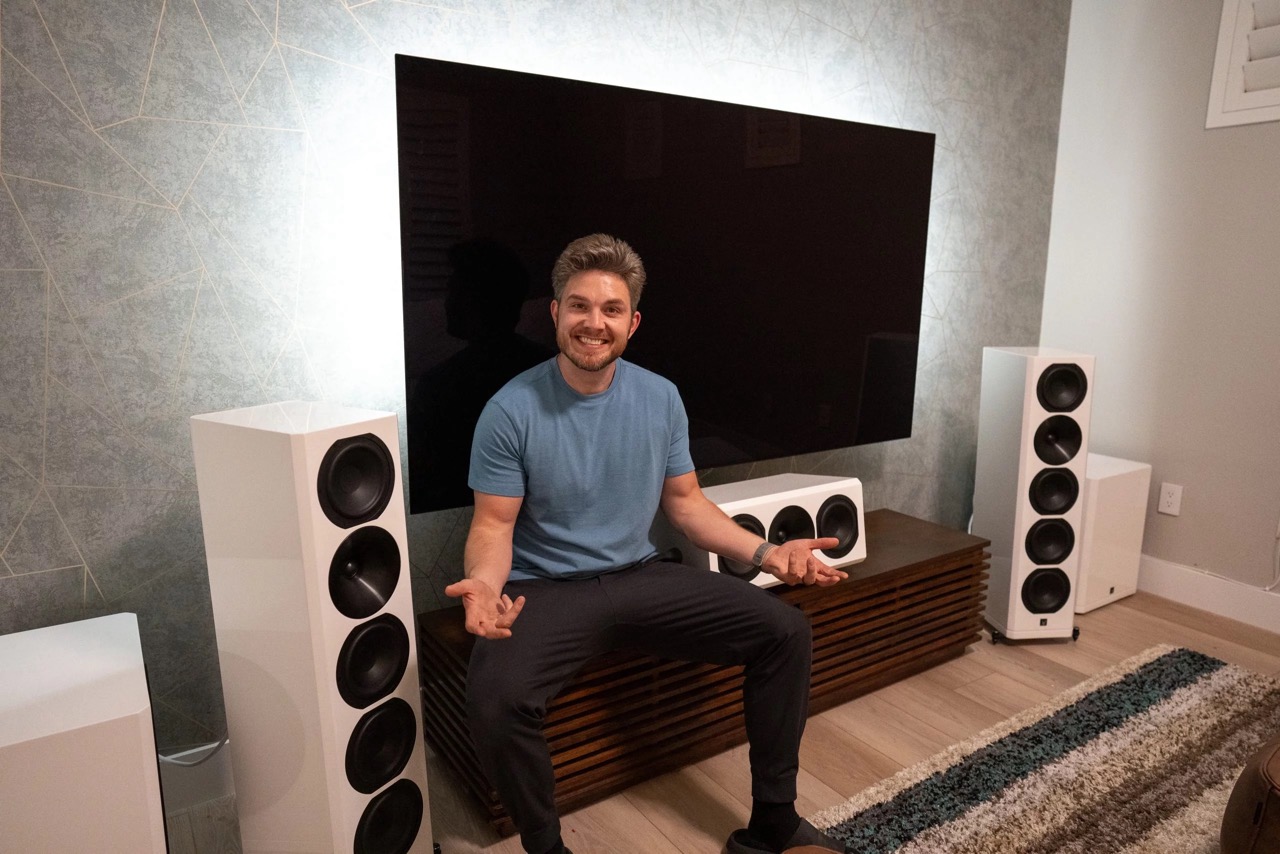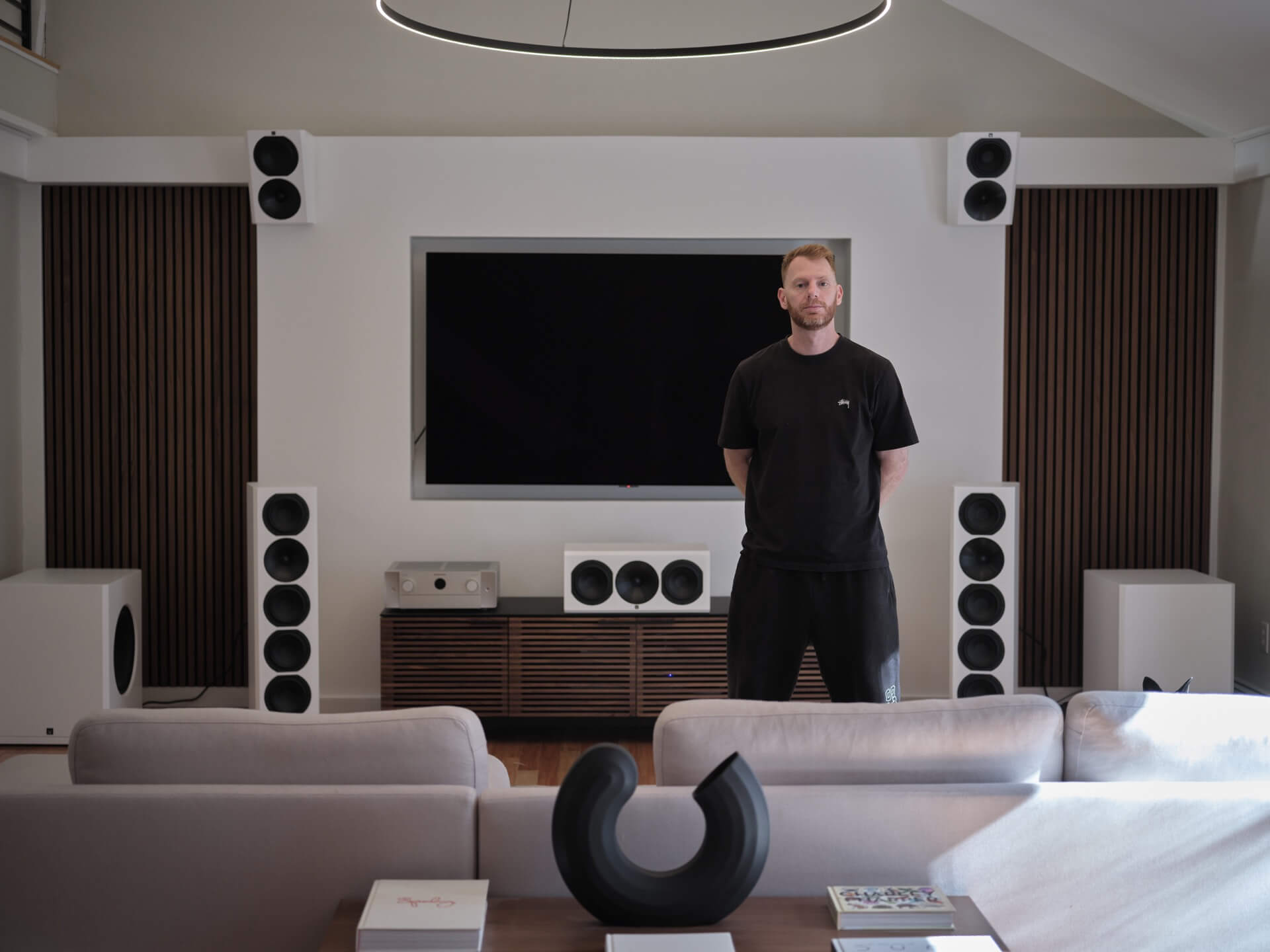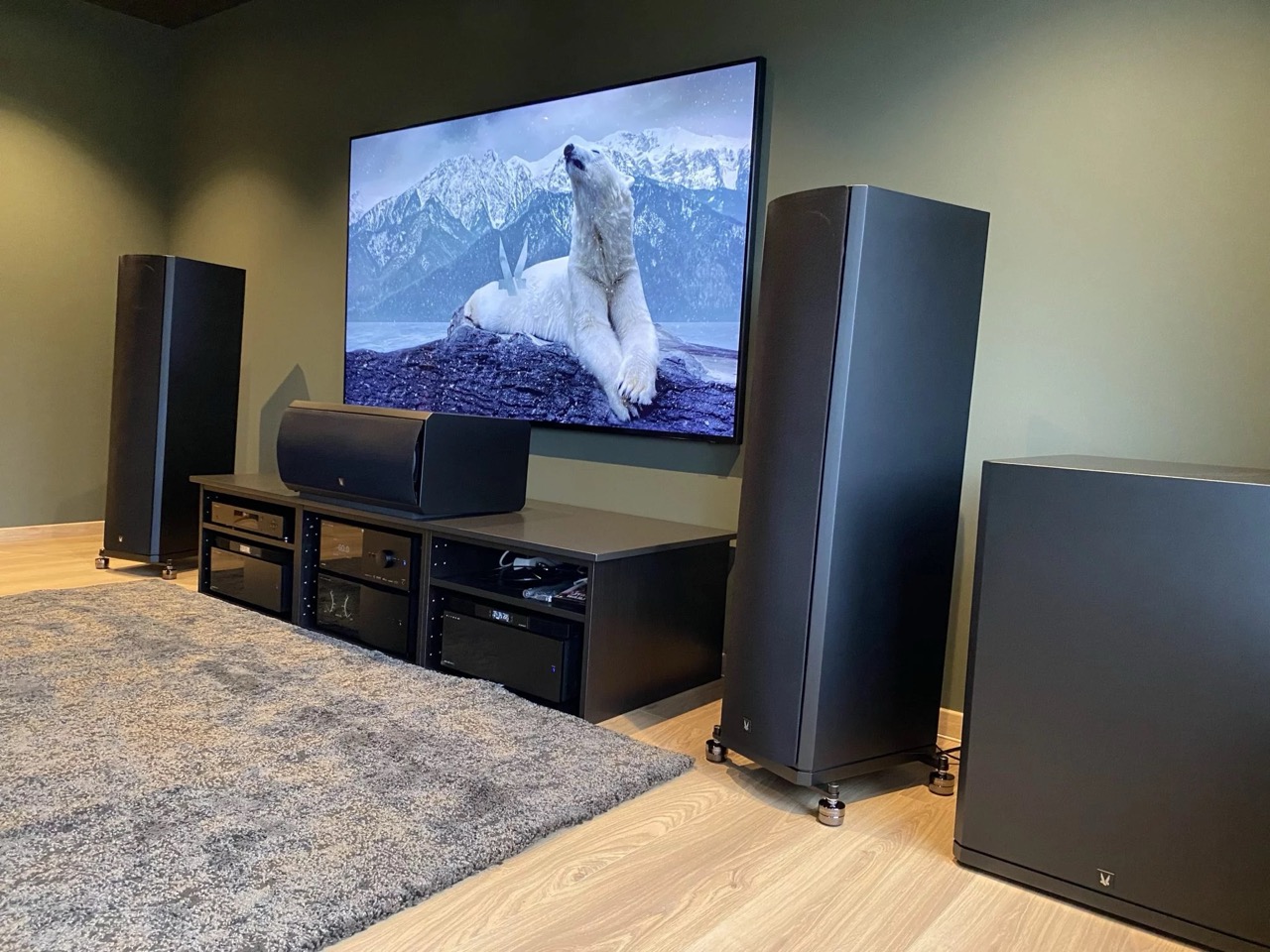Selecting the Right HiFi Equipment
Article summary - TL;DR
- Understand key components of a HiFi system: source, amplifier, and speakers.
- Choose floor-standing or bookshelf speakers based on your room size and acoustics.
- Invest in quality cabling and accessories for optimal sound performance.
- Ensure your HiFi integrates well with other home theater systems for a seamless experience.
- Enhance your audio-visual setup with the 1528 Tower 8 for expansive sound and depth.
Selecting the Right HiFi Equipment
Building a home cinema is an exciting journey that combines passion and technology to create an immersive audio-visual experience. Essential to this experience is the HiFi (high-fidelity) equipment which forms the heart of your home theater system. This guide will walk you through the important considerations when selecting the right HiFi equipment for your dedicated cinema room or multi-purpose living space.
Understanding HiFi System Components
If you’re new to home cinema, the variety of equipment options can be overwhelming. The basic components of a HiFi system include a source, such as a media player or turntable, an amplifier to power the speakers, and the speakers themselves, which come in various shapes and sizes. Let’s break down these components to help you make informed decisions for your space.
Your source device can greatly impact the quality of your audio. Whether you prefer vinyl records, streaming services, or Blu-ray discs, the device you choose should deliver a clean signal to the amplifier. Research your options and consider the format you will primarily use when selecting a source.
The amplifier’s role is to boost the audio signal from your source device, driving the speakers with enough power to fill your room with sound. Amplifiers range in power and features, so consider the size of your room and the power requirements of your speakers when choosing an amplifier.
Matching Speakers to Your Room Acoustics
Different speakers will interact with your room’s unique acoustics in various ways. Floor-standing speakers can produce robust, full-range sound, which may be suitable for larger rooms. Bookshelf speakers, while more compact, can still deliver high-quality audio and are a good match for smaller spaces or as part of a larger surround sound setup.
It’s important to listen to different types of speakers, if possible, in a setting similar to your home environment. This will give you an idea of how they might perform in your own space. Since speakers are so central to the quality of your home cinema experience, take the time to compare different brands and models.
Remember to also consider the placement of the speakers. They should be positioned at ear level when you’re seated and angled slightly towards the listening area for the best soundstage and stereo image.
Investing in Quality Cabling and Accessories
Cables and accessories might not be the most glamorous part of your HiFi system, but they can significantly affect the sound quality. Cheap, thin cables can degrade the audio signal and introduce noise, while high-quality ones can preserve signal integrity and offer a clearer audio path from your source to your speakers.
Other accessories like speaker stands, anti-vibration feet for turntables, and acoustic panels for room treatment can also enhance the performance of your HiFi equipment. These additions may seem minor, but they can add up to make a noticeable improvement in your overall listening experience.
While the best cables and accessories don’t need to be exorbitantly expensive, avoid going for the cheapest options. Research and invest in reputable brands known for quality and durability.
Integrating HiFi Equipment with Other Home Theater Systems
Your HiFi system will likely be part of a larger home theater setup, which means it will need to integrate seamlessly with other components such as a television, projector, or media center. Make sure the devices you select can communicate with each other, often through HDMI connections or wireless standards like Bluetooth and Wi-Fi.
To ensure a harmonious system, look for components that support the same audio formats and have the necessary inputs and outputs for easy interconnectivity. Some receivers, for example, come with multiple HDMI inputs, allowing you to switch easily between audio sources while maintaining high-quality sound.
If you’re planning to build a smart home theater, consider equipment that can be integrated with home automation systems. This will allow you to control your cinema experience with voice commands or a smartphone app, adding convenience and modern functionality to your setup.
Future-Proofing Your Investment
Technology evolves rapidly, and while you want to avoid getting caught in a never-ending cycle of upgrades, it’s important to select equipment that won’t become obsolete too quickly. Look for HiFi components with support for the latest audio formats and connectivity options that will withstand the test of time.
Upgradability is another factor to consider. Some systems allow for modular upgrades, so you can improve individual components without replacing the entire system. This could be a cost-effective way to keep your home cinema at the cutting edge.
Lastly, consider the warranty and support options available for your HiFi equipment. A reliable manufacturer with a strong customer service reputation can offer peace of mind and ensure that your investment is protected for years to come.
Taking the time to carefully select the right HiFi equipment will pay off by enhancing your movie-watching and music-listening experiences. By understanding the components, considering your space and needs, and investing in quality and future-proof technologies, your home cinema will provide endless entertainment and joy for you and your family.
Frequently asked questions
What components are essential for a HiFi system?
A HiFi system typically includes a source (like a media player or turntable), an amplifier to power the speakers, and the speakers themselves. Understanding these components is key to creating a great audio experience.
How do I choose a source device for my HiFi system?
Consider what format you will primarily use, whether it's vinyl records, streaming services, or Blu-ray discs. The source device should deliver a clean audio signal to your amplifier.
What type of speakers should I choose for my room?
Choose floor-standing speakers for larger rooms or bookshelf speakers for smaller spaces. It's best to audition different models in a similar setting to gauge their performance in your home.
Why is speaker placement important?
Speakers should be positioned at ear level when seated and angled towards the listening area. This enhances the soundstage and stereo image, ensuring you get the best audio experience.
How can cabling and accessories affect my HiFi system?
Quality cables and accessories are crucial as they impact sound quality. Cheap cables can degrade the audio signal, while high-quality options preserve signal integrity for clearer sound.
How do I ensure my HiFi system integrates with other home theater components?
Choose components that can communicate through HDMI or wireless connections like Bluetooth and Wi-Fi. Ensure they support the same audio formats for easy interconnectivity.
What should I consider for future-proofing my HiFi system?
Select equipment that supports the latest audio formats and has upgrade potential. Look for modular systems that allow you to upgrade individual components without replacing the entire setup.
Why is manufacturer support important for HiFi equipment?
Reliable warranty and support options ensure that your investment is protected. Good customer service adds peace of mind, allowing you to enjoy your HiFi system for years to come.
How can I enhance my listening experience with accessories?
Invest in accessories like speaker stands, anti-vibration feet for turntables, and acoustic panels to improve performance. Even minor upgrades can significantly enhance your overall audio experience.








